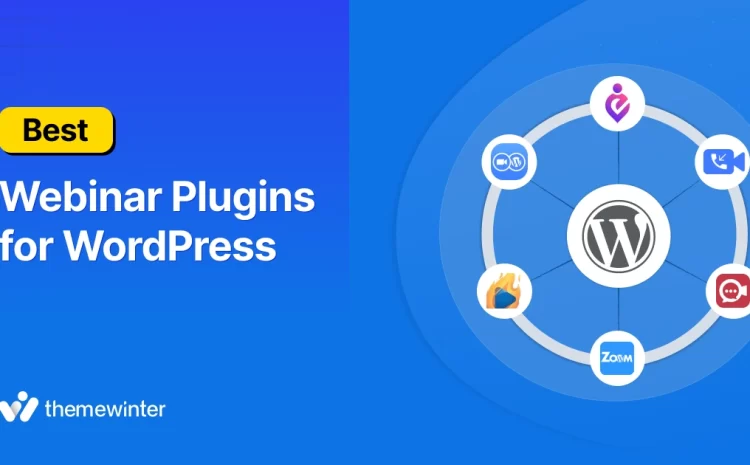How to Start an Event Planning Business:7 Easy Steps to Follow in 2025

Table of Contents
Starting a new business is more challenging than working in a company. However, with the right skills and dedication, you can succeed in the event planning business.
Event planning can become a career if you are on the right path and plan properly. To help you figure out how to start an event planning business, we wanted to share some key factors, challenges, advantages, and disadvantages, as well as give you an idea of event cost estimates.
To run an event business successfully, you can follow these steps!
Let’s start!
What is an event planning business?
Event planning businesses provide support to individuals and/or corporations in planning and executing their events. Whether it is personal events such as weddings and birthday parties or professional events such as corporate ceremonies and annual conferences.
Event planners work closely with clients to understand their vision, needs, and budget, then coordinate logistics like venue selection, catering, entertainment, decorations, and scheduling. The goal is to create seamless, memorable experiences that meet the expectations of attendees.
Event planning businesses can be small, medium or large groups of professionals. No matter the size, successful event planning requires excellent communication, creativity, problem-solving, and project management skills. So, be ready to determine if it’s the right fit for you or not.

How to start event planning business
Starting your own event planning business can be exciting and profitable. To get started, follow these seven easy steps to ensure a successful start. These steps will help you choose your niche and build a solid client base.

1. Gain event planning experience
The foundation of any successful event planning business is a solid base of experience and knowledge. Before starting your own event planning business, you should gain real-life experience. Here are some ways to build your expertise:
- Intern or work for established event planning companies.
- Be a part of planning school, college/university events and even family functions.
- Do some volunteer work for non-profit organizations or local community groups.
- Attend workshops, seminars, and industry conferences to stay updated on trends.
- Visit the local event management company office to explore their environment.
2. Build a solid event business plan
When you have a well-structured event business plan, you can make your organization the top in the event management industry. Design your business roadmap. It can help you to reach your goals and outline your vision for your event planning business.
Start with studying effective strategies and businesses that are comparable to your area of work. Once you have done this, connect with experts in the events industry who can guide you.
- Organize everything from scratch and focus on management.
- Make a business concept and define the services clearly
- Create your unique selling point and what your clients will get from you
- Research event industry trends, competition, and potential customers
3. Choose your target event business niche
While it seems appealing to offer a wide range of event planning services. But as a beginner in the event planning industry, it’s not a good decision to offer a wide range of services. The event planning industry is very large, and it can be tough to provide all types of event services. From the journey, it would be better to specialize in a particular type of event. This will help you stand out from the competition and attract the right clients.
When choosing your niche, consider your personal interests and market demand in your area. Here are some event business areas where you can start your journey.
- Weddings and engagements
- Corporate events and conferences
- Social events (birthdays, anniversaries, retirement parties).
- Non-profit charity events
- Cultural and religious events
- Music festivals and concerts
- Sports events
4. Make a financial budget plan
Starting an event planning business needs careful event budget planning. Create a detailed cost estimate that includes office space, equipment, marketing, insurance, and operating costs. Additionally, research potential funding options to cover your initial startup costs.
Here are some key expense areas you may notice :
- Business registration and license fees
- Insurance (general liability, professional liability)
- Office space or home office setup
- Marketing and advertising
- Software and tools (project management, accounting, CRM)
- Event management website
- Transportation
- Professional development and certifications
5. Gather funding for your business
When you’ve identified your startup costs, the next step is to determine how to fund your business. If you don’t have any savings to invest in your new business, you can seek help from your family and friends. If this is not possible, consider finding investors or taking a small business loan.
Remember, when you first launch your event planning business, income may be lower than expenses for the first few months, especially as you’re developing your client base. Be careful not to overspend at this stage.
6. Hire employees who understand the work
Building a strong team will contribute to your business’s success. As your event planning business grows, you may need to hire more team members. In starting, look for individuals who are passionate about event planning and have the necessary skills and experience. Offer part-time or contractual work opportunities before appointing them as full-time employees. This process helps to reduce your costs and gives you the option to select the perfect workers for your needs.
When hiring employees, look for individuals who:
- Have relevant experience in event planning or related fields
- Excellent organizational and communication skills
- Detail-oriented and have multitasking ability
- Can work well under pressure and adapt to changing situations
7. Start marketing your event planning service
Once your business has been set up, you should market your services to attract customers. Combine digital and traditional marketing channels, such as social media, website, email marketing, networking, and referrals. Create a strong online presence and showcase your portfolio to reach potential clients.
Remember that building a strong reputation takes time. Focus on delivering exceptional service to each client, and recommendations (and referrals) will become one of your most powerful marketing tools.
- Creating a website that displays your services and past events
- Use social media platforms to showcase your work
- Networking with vendors, venues, and other industry professionals
- Offering promotional packages or discounts for first-time clients
- Developing partnerships with photographers, caterers, and others.
- Creating valuable content through blogs, videos, or podcasts
- Attending industry events and trade shows to increase visibility
- Encourage client referrals and testimonials
📌 Goodreads: Maximize Your Event Success with Eventin’s AI-Powered Automation- Read more
Challenges to starting an event planning business

It’s important to know what challenges you might face when starting your event planning business. If you are aware of these kinds of difficulties, it can help you prepare and develop strategies to overcome them.
Building a client base
- Challenge: Finding new clients can be tough without a portfolio or reputation.
- Solution: Start by offering discounted or free services to friends, family, or local businesses to build a portfolio and gain referrals.
Vendor coordination
- Challenge: Working with vendors for catering, decor, and entertainment can be challenging, especially if they are unreliable.
- Solution: Build strong relationships with trusted vendors and maintain open, clear communication to avoid misunderstandings.
Time management
- Challenge: Dealing with multiple events, clients, and vendors can be stressful.
- Solution: Use an event management plugin/software to organize tasks.
Keeping up with the trends
- Challenge: Event styles and preferences change frequently.
- Solution: Keep up to date with relevant blogs, relevant social media pages, and network with other event planners.
Managing client expectations
- Challenge: Some clients may have unrealistic expectations of the event.
- Solution: Inform your clients what’s possible in reality and always have a backup plan in place.
Overspending on an event
- Challenge: Clients may become dissatisfied if their budget is overspent.
- Solution: Keep track of all expenses and inform clients of budget updates regularly.
Liability and legal issues
- Challenge: Unexpected incidents at events can lead to legal liabilities.
- Solution: Make sure your business is protected by proper liability insurance.
Find out more about Common Event Management Challenges and Solutions.
Pros and cons of event planning business
| Pros | Cons |
| Comparatively low startup costs | Irregular work hours (including weekends). |
| Flexibility to work from home or small office | Adapting to trends and client expectations constantly |
| Standard professions and working diversity | Last-minute changes or cancellations can be frustrating |
| Globally, it is in high demand now | |
| High-profit margins are possible | |
| Opportunity to network and build relationships |
Costs of event planning business
Like every business, starting an event planning business requires some initial investment, though the exact costs will vary depending on your location, services, and the size of the event. According to our research, we have created the cheapest initial costs list for starting an event planning business without difficulty.
Startup costs ( based on USA ):
- Business formation:
- Incorporating as an LLC or corporation: $50-$500
- Business licenses and permits: $200-$500
- Equipment: (buy second-hand to save money)
- Computer, printer, scanner: $500-$2000
- Digital camera: $500-$2000
- Office supplies: $100-$200
- Software:
- Event management software: $100-$500 per year
- Design software (if applicable): $50-$500 per year
- Marketing and advertising:
- Website development: $100-$5000
- Social media marketing: $50-$2000 per year
- Initial inventory:
- Event supplies (decorations, transport, etc.): $500-$5000
Total estimated startup costs: $2000-$30000
Note: All statistics are based on Internet research, including blogs.
What if possible started with $1000?
Are you excited? Okay, let me clarify. I’ll tell you the cheapest way.
First, the event business license fees depend on you; let’s say you spend $300. Then, you can buy equipment from the second-hand market for $200-$300. Don’t spend too much money on web development and software buying.
Instead, create a WordPress website for free (but you’ll need $30 for hosting + domain) and use a free event management plugin (the free version is usually enough). For design, you can use Canva, which is also free. After this, you’ll have $470 left. Spend $300 on event supplies and use $100 for marketing. Ops! You’ll still have $70 left; keep it in your pocket.
When your first event planning is successful, invest in buying the Pro event management plugin(software). You’ll need it to handle larger events.
Is starting an event planning business right for you?

Event planning business plans can be an exciting career if you are passionate about it. It is possible to become a successful event planner and start up your own business. But it’s not for everyone; before starting an event planning business, check this list. If you think you can handle these, you’re welcome.
- Do you have strong communication and teamwork skills?
- Are you creative and can think outside the box?
- Can you manage multiple projects and deadlines together?
- Are you passionate about creating memorable experiences for others?
- Can you sustain yourself during the startup stage with your financial resources?
- Are you comfortable working irregular hours, including evenings and weekends?
If you have the answers to all the questions above and you are sure that you can do this, then I would recommend you to start your journey.
Do you still have questions about the event planning business?
Do I need a degree to become an event planner?
– A formal degree is not mandatory for event planning, but having a bachelor’s degree in fields like hospitality management, public relations, or business can be beneficial. The most important factors are relevant skills, experience, and passion for event planning.
How do event planners charge for their services?
– Most event planners use one or more of these pricing models:
- Flat fee: A set price for the entire event
- Percentage of the total event cost: Usually 15-20%
- Hourly rate: Common for small events
- A combination of these methods
Can I run an event planning business from home?
– Yes, many event planners start their businesses from home to keep overhead costs low. As your business grows, you might consider renting office space or co-working space for client meetings.
What should I include in my event planning contract?
– Key elements of an event planning contract should include:
- Detailed description of the services to be provided
- Event date, time, and location
- Payment terms and schedule
- Cancellation and refund policies
- Liability clauses
- Client responsibilities
- Vendor management details
- Confidentiality agreement
How do I handle deposits and payments from clients?
– Best practices for handling client payments include:
- Secure the event date with a non-refundable deposit (typically 25-50% of the total fee).
- Make sure the payment schedule is mentioned in the contract
- For longer planning periods, consider the first and second payments
- Accept various payment methods (credit card, bank transfer, etc.).

